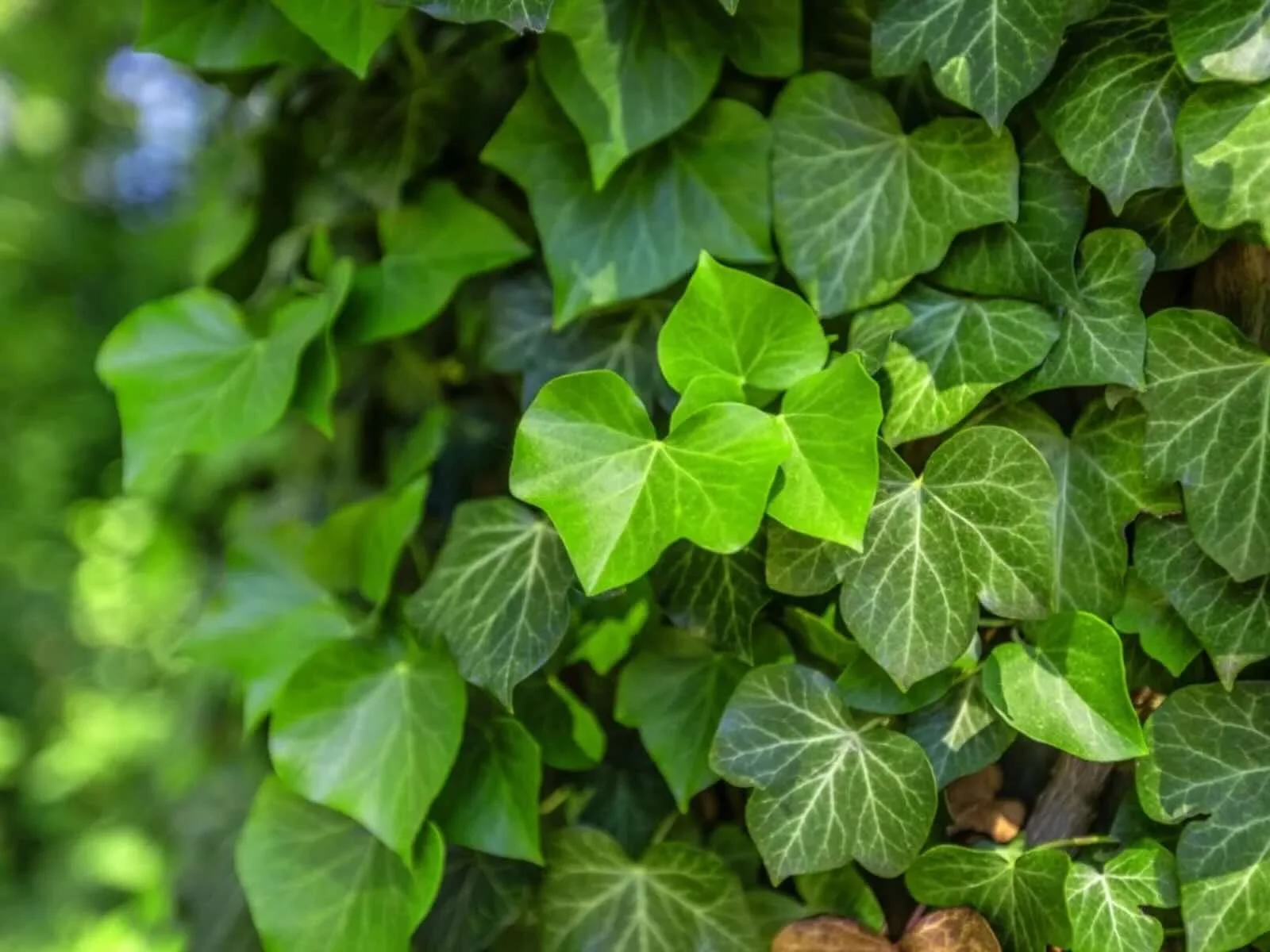
English Ivy at the Shakespeare Garden
Hedera helix
In Esther Singleton’s book, The Shakespeare Garden, she talks about the English Ivy, “England would almost cease to be England without the ivy that so luxuriantly covers the walls of old buildings and adds its soft beauty to the crumbling ruins.” Such is the reputation of ivy and one of its most positive and negative characteristics. Ivy can provide cover for old walls, fences, and building facades, but some indicate that it actually facilitates the additional destruction of the walls. It is commonly believed in Europe that no such damage occurs. In the United States, ivy can often be blamed for strangling trees in a forest setting.
Ivy was the “crown” of ancient Greek and Roman poets and is closely associated with Bacchus, who purported that binding one’s brow with ivy could prevent intoxication from drinking wine. Others believed that muddled ivy leaves boiled in wine and then drunk could also prevent drunkenness. The Greeks presented ivy to newly marrieds as a symbol of fidelity.
In Shakespeare’s time, it would have been a part of the gardens, both formal and informal, featured in Christmas or winter decorations, and appearing as a sign over the tavern door to indicate the fine quality of the drink served within. Ivy was considered a medicinal treatment for asthma, bronchitis, colds, pulmonary disorders, and treating stretch marks.
Shakespeare presents ivy as a positive symbol of clinging affection and loving embrace but also as a negative, almost parasitic, symbol.
Ivy is a woody evergreen perennial with at least 10 species of climbing and ground covering varieties. It is native to most of Europe and is considered a vigorous to aggressive plant. It is hardy in zones 4 – 9, prefers full to part shade with medium amount of moisture, although it will tolerate drought. It is attractive to wildlife and birds assist in spreading ivy. Whether one considers ivy invasive or just vigorous might be a matter of personal preference, but it is a beautiful addition to a yard or garden.
Shakespeare references to English Ivy:
-
Adriana speaking:
If aught possess thee from me, it is dross,
Usurping ivy, brier, or idle moss;
Who, all for want of pruning, with intrusion
Infect thy sap and live on thy confusion
Part cheers each part:
Being tasted, stays all senses
With the heart.
-
Titania speaking:
the female ivy so enrings the barky finger of the elm.
O, how I love thee!
How I dote on thee!
-
Prospero speaking:
The ivy which hid my princely trunk,
And suck’d my verdure out on ‘t.


